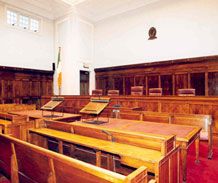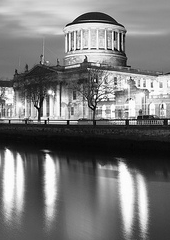Theseus’ paradox and the Legal Services Regulation Bill

Many of its proposals were prefigured by the UK’s Legal Services Act 2007. Writing this morning in the Brief (a daily email newsletter from the Times, which will be made available later in the week here), Dame Janet Paraskeva made two points about the Act which resonate in the context of the current Bill. First, she points out the promise of the Act has not always been fulfilled “not … by any shortcoming in the legislation but by a lack of will to make the practical changes on the ground that would remove obstacles to choice.”…

 The following appears under the above heading in
The following appears under the above heading in 



